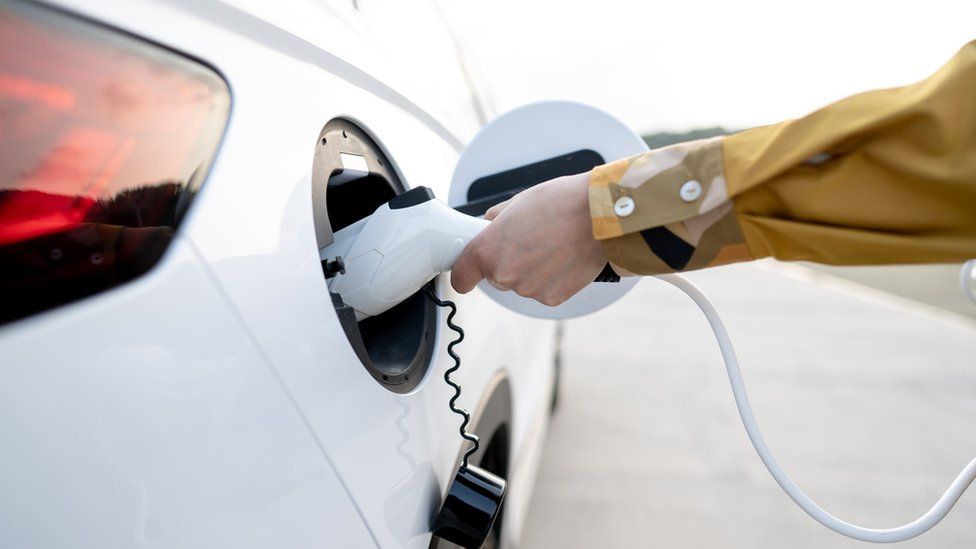New Brexit trade rules covering electric vehicles could cost European manufacturers £3.75bn over the next three years, an industry body has said.
The rules are meant to ensure that EU-produced electric cars are largely made from locally sourced parts.
But manufacturers on both sides of the Channel say they are not ready.
The European Automobile Manufacturers Association (ACEA) also warned the measures could reduce output from EU factories by 480,000 vehicles.
And they said customers would pay the price.
The main problem lies in so-called “rules of origin” which come into force in January. They apply to shipments of cars across the Channel under the terms of the Brexit deal, the UK-EU Trade and Cooperation Agreement.
They will effectively ensure that electric vehicles will need to have batteries produced in either the UK or the EU.
Cars that do not meet the criteria will face 10% tariffs – or taxes – when transported across the Channel, in either direction.
The rules were designed to protect the European industry from cheap imports.
But because battery production in Europe has not ramped up as quickly as expected, carmakers are struggling to meet the new criteria.
It is a serious problem for European manufacturers. The UK is by far their largest export market, with 1.2 million vehicles arriving at UK ports last year. Likewise more cars built in the UK are transported to the EU than any other region.
Steep tariffs could make electric cars more expensive to produce, and potentially push up prices.
The ACEA wants the new rules to be delayed for three years, and it is appealing to the European Commission to take action.
“Driving up consumer prices of European electric vehicles, at the very time when we need to fight for market share in the face of fierce international competition, is not the right move,” said Renault chief executive Luca de Meo, who is also acting as ACEA’s president.
“We will effectively be handing a chunk of the market to global manufacturers,” he added.
- Firms still forced to sell more electric cars
- PM delays petrol car ban in shift on green policies
For the rules to be pushed back, an agreement would need to be reached between the UK and the EU.
The UK’s Business Secretary, Kemi Badenoch, said last week she was “optimistic” such a deal could be reached.
But in an interview with the Guardian on Friday, the EU’s internal market commissioner Thierry Breton was much less forthcoming.
He said it would be wrong to re-open the Brexit deal to satisfy the motor industry.
“If something has been negotiated, it shouldn’t be changed,” he told the newspaper.

The European Commission said: “Brexit has changed the trade relationship between the UK and the EU, among other things.”
It noted that the Brexit trade deal – the EU-UK Trade and Cooperation Agreement – “is the outcome of a negotiation in which both sides agreed to an overall balance of commitments”.
It added that the rules of origin aim to develop a “strong and resilient battery value chain in the EU”.
Sigrid de Vries, the secretary general of ACEA, said it was unsurprising that the industry’s appeals were meeting resistance.
“The European Commission doesn’t want to change anything, it seems, when it comes to Brexit-related topics. It’s politically very sensitive,” she told the BBC.
“We do understand it, and we are not asking to change any of these arrangements in any fundamental way.”
Meanwhile the chief executive of the UK’s Society of Motor Manufacturers and Traders, Mike Hawes, told reporters last week that he thought a deal would be done – but it could be a last-minute affair.
“We are still optimistic an agreement can be reached. It makes common sense,” he said.
“But I can see this going down, like with Brexit, to Christmas Eve, or something like that.”
Trade officials from the EU and the UK are due to meet this week in London. It is not yet known whether the new rules will be on the agenda.
